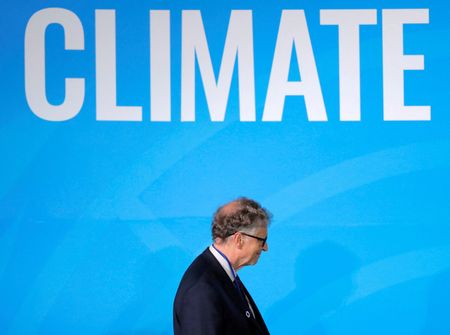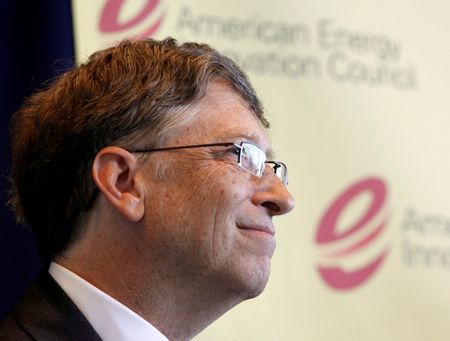By Timothy Gardner
WASHINGTON (Reuters) -A high-tech nuclear energy project in Wyoming, backed by the U.S. Department of Energy and Bill Gates, is delayed by at least two years and a U.S. senator said it showed that the United States needs to reduce reliance on Russia for a special fuel for such reactors.
TerraPower, a venture founded by billionaire Gates said last year its $4 billion Natrium plant would be built in Kemmerer, a remote Wyoming town where a coal plant is set to shut in 2025. The 345-megawatt plant will likely be delayed for at least two years until 2030, the Casper Star Tribune said late on Tuesday, citing a TerraPower spokesperson.
“When Russia invaded Ukraine in February, it put a big question mark up for us,” Jeff Navin, the spokesperson for TerraPower told the Tribune. “We had a plan. It was a very aggressive timeline; we felt pretty confident that we could meet it. But it was all predicated on having our first coreload of fuel come from Russia.”
TerraPower did not immediately respond to a request for comment.
U.S. companies are trying to develop a new generation of small nuclear plants to help cut carbon emissions but only one firm sells the fuel it needs, and it is Russian. The fuel, called high assay low enriched uranium, or HALEU, is enriched up to 20%, much above the up to 5% level today’s reactors use.
The U.S. government is looking to downblend some of its stockpile of weapons-grade uranium to help provide fuel, but Navin said it lacks the capacity to disassemble warheads faster. The Department of Energy did not immediately respond to a request for comment.
“Instead of relying on our adversaries like Russia for uranium, the United States must produce its own supply of advanced nuclear fuel,” said Senator John Barrasso, a Wyoming Republican, who has introduced a bill to boost domestic production of HALEU.
Only one company outside Russia, U.S.-based Centrus Energy Corp is licensed to produce the fuel but it is years away from making commercial amounts.
(Reporting by Timothy Gardner; Editing by Nick Zieminski and Tomasz Janowski)


